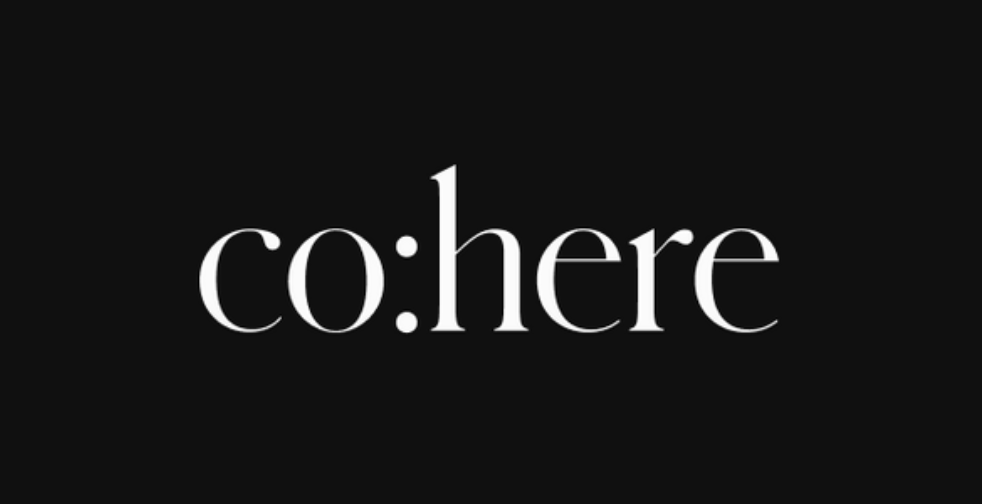Language is humanity’s greatest innovation. It is the primary method of communication between humans and the primary means of preserving information, whether through oral tradition or in written form. Language is the basis for education, collaboration and innovation. Much of what distinguishes the accomplishments of our species can be attributed directly to language.
Humanity’s second greatest innovation? Arguably digital machines along with the infrastructure they are built on and the software that runs them. Much of the modern world is built on a digital backbone. And yet, machine understanding of human language remains in its infancy.
That is why we invested in Cohere, a startup that enables leading-edge machine understanding of natural language for every business (see The Globe and Mail: Toronto startup backed by AI experts aims to bring Google-quality predictive language to the masses). This week the company emerged from stealth.
Until now, high quality NLP models have been the sole domain of the largest technology companies with bottomless resources. Massive scale is required to run modern NLP and the costs of training models, and collecting training data, runs in the millions of dollars for each model. The Cohere API provides access to models that read millions of web pages, teaching them to understand the meaning, sentiment and tone of the words we use. Any company can gain access to this world-leading AI with just a few lines of code, without sophisticated internal teams, and without supercomputing infrastructure or a big tech budget. We believe that democratizing access to sophisticated machine understanding of natural language is a massive opportunity.
Our investment in Cohere is based on the size of that opportunity, combined with an extraordinary and quite new AI technology called Transformers, and a team that is uniquely positioned to take Transformers out of the lab and into a simple product available to every business. Cohere’s co-founder and CEO, Aidan Gomez, co-authored the breakthrough paper “Attention is All You Need,” which pioneered the implementation of Transformer architecture. One of the company’s other co-founders is Geoffrey Hinton protégé, Nick Frosst.
We began working with Aidan, Nick and third co-founder Ivan Zhang before they incorporated, and invested on day 1. We have since been joined as investors by some of the world’s leading AI luminaries, including Geoffrey Hinton, Fei-Fei Li, Pieter Abbeel, Raquel Urtasun, Ian Goodfellow, and Sanja Fidler.
We believe Cohere is uniquely positioned to become the leading platform in the dynamic and fast-growing NLP space. As the adoption of NLP becomes increasingly widespread, and more businesses begin to implement the technology, Cohere has the opportunity to revolutionize the way business is done.
For more information on NLP and our decision to invest in Cohere, please read Radical’s thesis, Talking Human: The Rise of Natural Language Processing.
AI News This Week
-
Artificial intelligence for a reduction of false denials in refugee claims (The Journal of Refugee Studies)
Radical Ventures’ Leah Morris, Assistant Professor Hilary Evans Cameron at Ryerson University and Professor Avi Goldfarb at the University of Toronto explain how modern AI may improve fairness in refugee claims. In brief, by making the underlying uncertainty in refugee claims visible to decision-makers through statistical prediction tools, overconfidence can be reduced, improving decision outcomes for claimants. This would require international refugee law to recognize an obligation under the UN Convention to resolve decision-making doubt in the claimant’s favour and use abductive inference as advocated by Evans Cameron.
-
To speed discoveries, U of T lab launches free library of virtual, AI-calculated organic compounds (University of Toronto)
“The world has no time for science as usual.” To speed up discoveries, Alán Aspuru-Guzik, a professor at the University of Toronto/Vector Institute and Scientific Advisor to Radical Ventures, and his research team has launched a free library of virtual, AI-calculated organic compounds called Kraken. The open-access tool will accelerate the discovery of new chemical reactions that underpin the development of everything from smartphones to life-saving drugs.
-
DeepMind extends hunt for the world’s best AI researchers to Toronto (CNBC)
The AI research company DeepMind already has labs in Montreal and Edmonton. The company’s desire to build a small team in Toronto reflects Canada’s position as a generator of the limited global AI talent. There are over 100 world leading researchers who oversee labs at universities across the country. We discuss Canada’s significant talent advantage in our 2021 Canadian AI Ecosystem Primer.
-
Phillip Crawley: How AI helped The Globe and Mail reach 170,000 digital subs (Press Gazette)
CEO of The Globe and Mail, Phillip Crawley, explains how adopting an AI program called Sophi in the newsroom enabled the newspaper to drive up both digital subscribers and revenue. Crawley notes “with homepage editing and social media management outsourced to an award-winning robot, his journalists are able to devote more of their time to finding and reporting on stories.”
-
US Senate committee revised a draft bill to fund AI, quantum, biotech (VentureBeat)
In 2019 the Whitehouse launched ai.gov to share AI initiatives including the US AI R&D Strategic Plan and a 20-year AI research roadmap. This bipartisan bill would authorize approximately $95 billion to invest in basic and advanced research, commercialization, and education programs in AI, as well as semiconductors, quantum computing, advanced communications, biotechnology, and advanced energy. Another $10 billion could be authorized to establish 10 regional technology hubs.
Radical Reads is edited by Ebin Tomy (Analyst, Radical Ventures)

